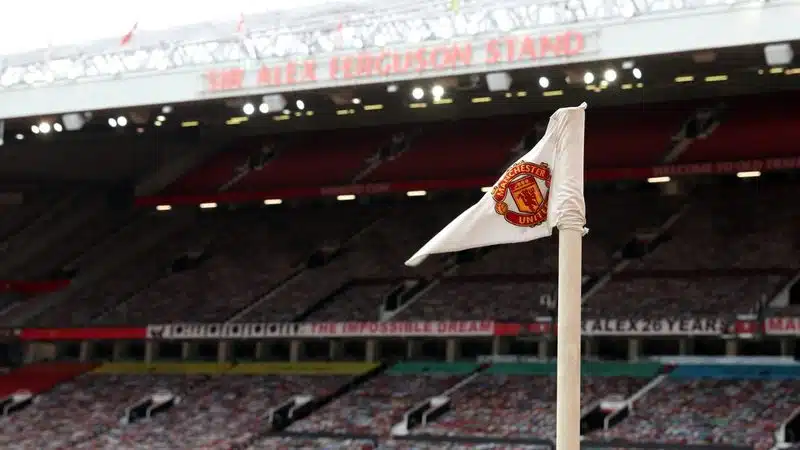
Premier League giants Manchester United on Thursday announced a multi-year partnership with blockchain company Tezos as their new training kit sponsors.
The £20 million-per-year partnership, which excludes the naming rights of the Carrington training ground, sees the Red Devils become the latest Premier League club to enter the crypto and blockchain space, with the likes of Arsenal, Southampton and Manchester City to name a few.
The Manchester United-Tezos deal will see the club use Web3 technology through the Tezos blockchain to improve fan and player engagement.
The partnership also includes Tezos’ pledge to support the Manchester United Foundation with ongoing donations in tez, the native currency of the Tezos blockchain.
Following the conclusion of their eight-year £120 million sponsorship contract with American insurance company Aon at the end of last season, United were on the lookout for a new training kit sponsor.
Subsequent discussions with Manchester-based The Hut Group broke down and thus, United’s men’s and women’s teams trained without a sponsor for the first half of the 2021-22 season.
Manchester United are now the latest sports team to join Tezos, whose impressive portfolio includes New York Mets (Baseball), McClaren and Red Bull Racing (Formula One) and Team Vitality (eSports).
What is Tezos? How do they operate?
Tezos (XTZ), based in Zug, Switzerland, is a decentralised open-source platform started by the husband-and-wife team of Arthur and Kathleen Breitman in 2017. It is a self-amending blockchain that follows an on-chain governance policy.
The self-amendment policy makes the platform upgrade itself without manual intervention and thus reduces the costs involved in the coordination and execution of protocol upgrades. The self-amending principle also helps Tezos avoid splitting the network into two different blockchains.
The on-chain governance policy means the platform is continuously running online and requires code modifications to effect changes. This policy involves stakeholders, which comprises miners who validate the transactions, developers who maintain core blockchain algorithms and users/participants who use and invest in various cryptocurrencies.
The stakeholders as a part of the process are provided with economic incentives to participate. While participants can earn a cut of overall transaction fees for voting, developers are rewarded through alternate funding mechanisms.
The participants can vote to accept or decline the proposed change. If a proposed change is accepted, it is then included in the blockchain and baselined.
Tezos in betting
Tezos have ventured into the gambling market with XTZ bets, a decentralised platform built on the blockchain by Dexy Games Inc.
Here, a user can place a bet against other players through publicly verifiable smart contracts deployed on the Tezos blockchain.
What is a smart contract?
A smart contract is a self-executing contract where the terms of an agreement are just between a buyer and a seller without any intermediaries involved.
One must note that XTZ Bets is not a casino thus it doesn’t set any betting odds, nor take any percentage of the winning amount. It is a pure peer-to-peer operating service that is funded by the sale of game tickets on the platform and residual income earned from delegating smart contracts through Proof of Stake (PoS).
TezDice is the first and only gambling website that supports Tezos.
Where does the relationship between Crypto and football stand?
Cryptocurrency is steadily capturing a lot of the football space and sport in general, whether it is fan engagement (fan tokens and NFTs) or team sponsorship deals.
The essential promise of generating digital revenue appeals to clubs, and that has led cryptocurrency firms to sign lucrative contracts with major European clubs like Paris Saint-Germain, Manchester City, Inter Milan and now Manchester United.
Netherland’s PSV Eindhoven became the first club in Europe to have its entire sponsorship paid in Bitcoin after it signed a deal with Dutch cryptocurrency company Anycoin Direct, while David Barral, a former Real Madrid B and Levante striker, became the first-ever player to be purchased using cryptocurrency when he signed for Segunda B side DUX Internacional de Madrid in 2021.
Follow us on Telegram for the latest updates from the world of sports!
Interested in football betting? Click here to check out the list of top sites.
Featured photo: AFP / MARTIN RICKETT













